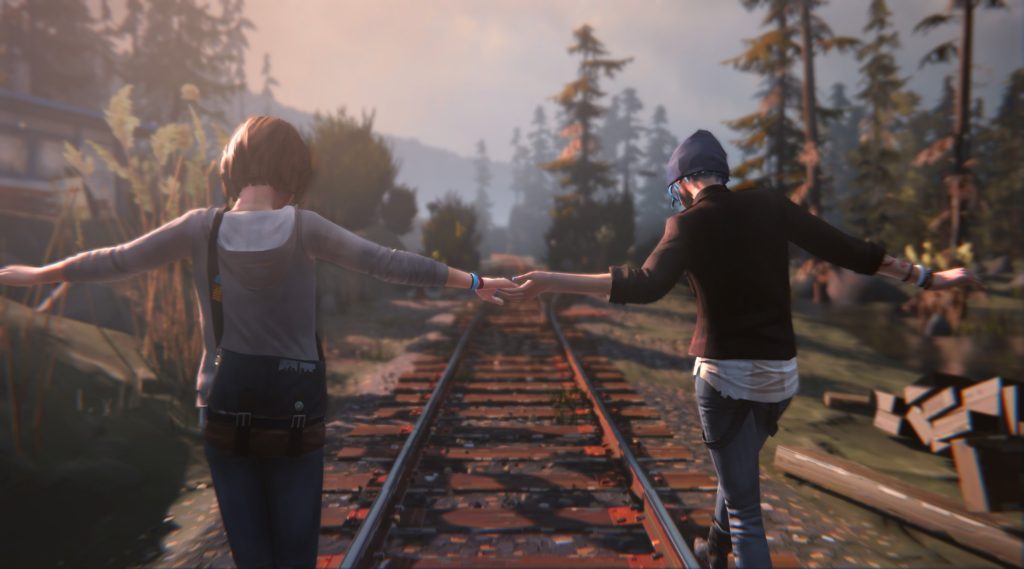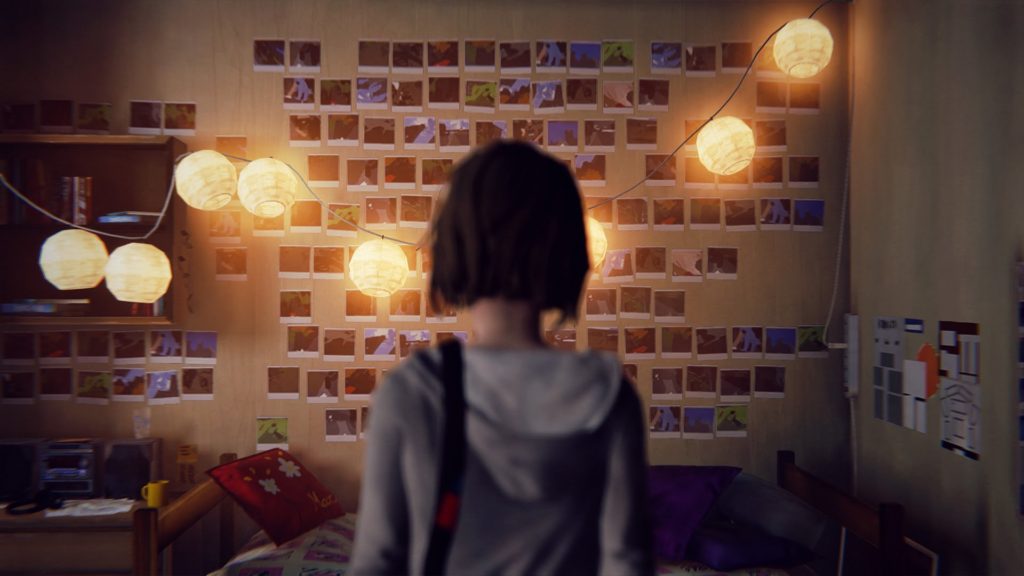If you have yet to play through Life Is Strange, turn back now! This post is riddled with spoilers. Read something spoiler free, like this Fire Emblem Fates: Conquest Review!
If you’re a gamer, and have yet to watch a single “Game Theory” video, you are missing out big time! I’ve been a fan for years, and recently they did a video on Life Is Strange where they analyzed the impact that one’s personality can have on their decision making process, as well as the correlation between consumed media and personality type. I am a fan of studying the way psychology influences us as gamers, and I don’t think there’s been a game to date that could serve as a better study.
 Don’t get me wrong, morality games are nothing new between the likes of Fable and one of my personal favorites, InFAMOUS. But unlike
Don’t get me wrong, morality games are nothing new between the likes of Fable and one of my personal favorites, InFAMOUS. But unlike
those aforementioned titles, there are no central mechanics influenced by morality in Life Is Strange, as the morality element is the main mechanic. Making choices, and watching them unfold before you, is the sole purpose of the game.
To be clear, this isn’t a review, as that will come later, but this is more of a critical analysis, as well as a response to the Game Theory video, which centers around the final decision. Final spoiler warning, as we’re getting into the heart of this discussion.
The final decision of the game forces you to choose between your best friend and your entire town. Which is a big choice, and as I’m sure you can imagine, quite a heavy burden. It is handled rather effectively, and I want to explore why that choice was so difficult. But in order to do so, we have to look back at a lot of the major decisions in the game, and what makes them effective.
Chloe brings you, the player, and Max, the character you control, through quite a bit throughou
t the game. It is a very emotionally draining journey that tests your judgment as well as your concern for other people. The thing that Life Is Strange does that makes it so hard to make that final choice, is create a truly multidimensional character that is difficult to relate to on some levels, but easy to sympathize with on others. The first interaction you see Chloe have is with Nathan Prescott, where she shows that she’s tough, and has a lot of gumption. She also shows a lack of caring for other people by the way she talks to Nathan, but when he pulls the gun out her demeanor takes a slight shift. Her genuine fear shows vulnerability and youth in a character that has thus far seemed confident and unbreakable.
The game then does a great job of making characters like David, Chloe’s stepdad, seem awful before you even see the two interact. Combine that with the Rachel Amber posters all around the school, and you realize that Chloe has it hard. Then you learn that her dad is dead and her best friend moved without warning, and it feels kind of harsh. Chloe’s entire circle has collapsed around her, and the only consistent figures in her life are Joyce, the hard working mother, and David, the very nervous and obsessive stepdad.
Then you get to watch Chloe make a series of stupid decisions, hanging out on train tracks, shooting David’s gun, and hunting down killers of her own volition (examples all mentioned in the Game Theory video). Also, arguably my least favorite thing that Chloe does in the whole game, is get jealous and angry when Max tries to talk to Kate Marsh (who is experiencing suicidal thoughts). Chloe is not a perfect character. But she does love Max. That shows, in the things she says, in a lot of the belongings that she kept in her house.
The end of the game even recaps a lot of your best experiences with Chloe before you’re given the final decision. You as the player choose how much you learn. You explore, and experience things by choice. You are Max. So the choice you’re making isn’t some binary video game decision. It’s a real choice based on experiences that you have had.
MatPat brought up that those with the “Mediator” personality are intuitors, more likely to save the town because they look towards the future. But I would argue that sensors are also somewhat likely to save Arcadia Ba y, simply due to how the storyline was structured. Those who value the past, and look to it to make decisions would understand that by the time the final situation comes along, Chloe Price has had her full character arc. She has grown and changed, and in the end, she not only accepts her fate but welcomes it.
y, simply due to how the storyline was structured. Those who value the past, and look to it to make decisions would understand that by the time the final situation comes along, Chloe Price has had her full character arc. She has grown and changed, and in the end, she not only accepts her fate but welcomes it.
Destroying Arcadia Bay isn’t even truly an option. To do so would be to deny Chloe the right to face her destiny. Perhaps this doesn’t hold up statistically based on the research that the theorists did, but it’s something to consider. Chloe is a character who struggles her entire life, and can’t make decisions on her own. Until her final decision, which is to accept the reality that she has to finally sacrifice for those she loves. That effective delivery is what made this game so great. Maybe the story didn’t wow me in every facet, but fact is, this game really did tell a riveting and meaningful story.
But with that, this post is getting to be kind of long! Thank you all for reading our first ever critical analysis. I do love breaking down game narrative and seeing it for its deeper value. Writing this has been a blast, and if you read it without playing the game, you kind of ruined it for yourself. But I would still play it anyway. It’s a fun and moving experience, so check it out when you get a chance! For more on the best games around like Life Is Strange and many more, come back soon for more from the GAME ROOM!!!